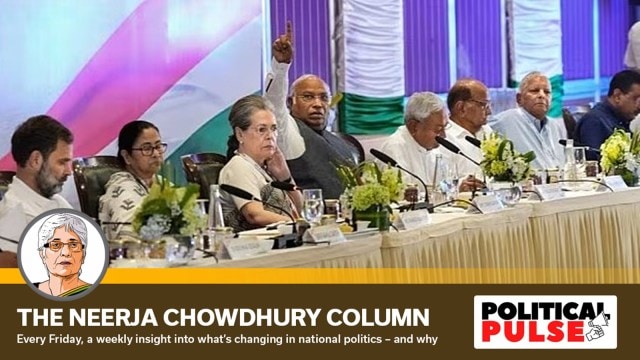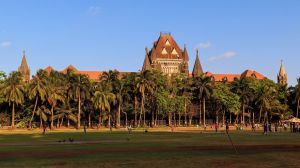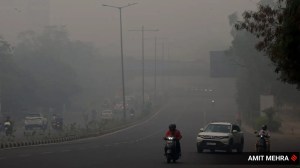INDIA alliance is not just running out of ideas – but also time
Congress has to show more heart, even as it goes back to drawing board having lost despite good faces, potent issues, and welfare agenda on its side
 Trinamool Congress chief Mamata Banerjee and Samajwadi Party head Akhilesh Yadav made it known that they were not going to attend the meeting of the INDIA alliance called by Mallikarjun Kharge on December 6. (PTI/File)
Trinamool Congress chief Mamata Banerjee and Samajwadi Party head Akhilesh Yadav made it known that they were not going to attend the meeting of the INDIA alliance called by Mallikarjun Kharge on December 6. (PTI/File)It was astonishing to see some members of the INDIA alliance berate the Congress within hours of its defeat in the three Hindi heartland states – even as it clocked an unexpected victory in Telangana.
Trinamool Congress chief Mamata Banerjee and Samajwadi Party head Akhilesh Yadav made it known that they were not going to attend the meeting of the INDIA alliance called by Mallikarjun Kharge on December 6. DMK president M K Stalin also sent word that he could not attend, as he had a crisis on his hands due to Cyclone Michaung.
Clearly, the Congress had fixed the meeting without consulting its allies.
The regional parties could have aired their grievances behind closed doors. When a member of a family faces defeat or a setback or a failure, other members hold his or her hand, not demoralise the person further – even if the person is responsible for his or her fall.
“Bikhrav (division)” in INDIA was the message that the public censure of the Congress by the regional chieftains sent to the country. This, when their opponent BJP had emerged as united, even monolithic and formidable, after the recent elections.
Though avoidable, the decision of some leaders of the INDIA parties to stay away from the December 6 meeting may have been understandable, reflecting the demoralisation in the Opposition ranks. And, indeed, it highlighted the need for the Congress to be mindful of the sensibilities of its allies.
The regional parties hold a grudge against the Congress for going it alone in the just held state elections, and not forging alliances with them. Admittedly, the Samajwadi Party does not have much of a presence in Madhya Pradesh – it did not get even 0.5% of the total votes – but the Congress could have left two-three seats for it in the interest of creating goodwill. After all, the Congress too can be expected to seek seats in Uttar Pradesh beyond its strength if the seat-adjustment arrangements work out within the INDIA alliance.
It certainly did not warrant an “Akhilesh, Vakhikesh ko chodo (Forget Akhilesh)” comment from Madhya Pradesh Congress chief Kamal Nath during the campaign. It was another proof for the regional parties of the Congress’s usual high-handed attitude.
By going it alone, the Congress may have wanted to increase its clout and enhance its bargaining position vis-a-vis the regional parties when it comes to negotiating on seats. Anyway, the results show that the Opposition parties have no option today but to hang together. The need to swim — or sink? — together has become even more acute after the recent polls.
It must be really confusing to be in the Opposition today. Having experienced figures, seen as prospective chief minister candidates, leading the party campaign (Kamal Nath, Bhupesh Baghel, Ashok Gehlot) did not work for the Congress. A soft Hindu approach (Kamal Nath’s temple-hopping and Bhupesh Baghel’s Ramayana festivals) did not pull Hindu heartstrings. Social welfarism could be trumped by the BJP’s social welfare programmes (Ladli Behna Yojana in Madhya Pradesh to give Rs 1250 per month to women, and the Mahtari Vandan Yojana flagged by the BJP in Chhattisgarh).
The INDIA alliance hoped the caste census would be a game changer, especially after Nitish Kumar’s caste survey revealed that OBCs made up 65% of the state’s population. The Congress announced it as a promise in all the poll-going states. But it could not make this too a roaring poll issue for the empowerment of OBCs (which Mandal-1 was in 1990) – though both Baghel and Gehlot themselves are OBC CMs, and Madhya Pradesh has a sizeable OBC population.
The Prime Minister, who understands the potency of the OBC (caste census) card, has started countering this by saying that, for him, there are only “four castes”: “Youth, women, poor and the farmers.” The four will be decisive in Battle 2024, even as Modi himself is the biggest OBC face in the country.
When the Congress goes back to the drawing board and figures out the reasons for its failure, and the INDIA alliance – now tipped to meet in the third week of December – hopefully puts a plan of action in place, it will have to squarely look at several issues.
How does it deal with the Modi factor which, like it or not, will be the central issue in 2024? INDIA does not have a figure to counter him. The situation is reminiscent of Indira Gandhi, who when asked by a foreign journalist ahead of the 1971 and 1980 general elections as to what was the central issue in the polls, replied: “I am the issue.”
Her opponents too did not know how to counter her.
Second, how will INDIA meet the challenge of the formidable electoral machinery called the BJP, the likes of which has few parallels even across the world?
Apart from the Hindu-Muslim polarisation which underwrites every election today, there are early signs of another fault-line appearing on the political horizon – the North-South divide. The DMK is seen as attempting to assert its Dravidian identity, by first questioning Sanatan Dharma and now its MP making a remark about the Hindi heartland’s preference for the BJP, which was expunged from Parliament records.
This is bound to create a counter-reaction in the North, which will only help the BJP. And heighten the dilemma for the Congress. For, the majority of seats for INDIA are likely to come from the Southern states, and yet, as a mainline party, the Congress cannot afford to antagonize the heartland states.
The surest way forward for the Opposition alliance is obviously to knuckle down to effecting one-on-one contests in the 400 Lok Sabha constituencies it had earmarked – against the BJP (or NDA) candidates to prevent a division in the Opposition votes.
But this will require statesmanship of a high order, overcoming turf battles, individual agendas and all manner of pressures, so as to not miss the wood for the trees. The Opposition leaders will also be called upon to effect this with despatch.
For, there is a buzz in the country’s capital today – that the BJP could well opt for an early general election.
(Neerja Chowdhury, Contributing Editor, The Indian Express, has covered the last 10 Lok Sabha elections. She is the author of How Prime Ministers Decide)
- 01
- 02
- 03
- 04
- 05































